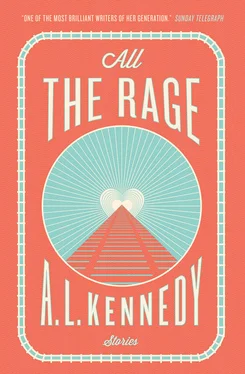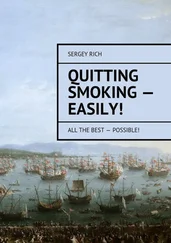You’ve established — because you intend to live decently, always have — this habit of testing your actions in advance. You ask — will doing this leave me with permanent regrets?
It’s a not unreasonable question.
In this case, simply dumping your decision as a fuzzily recorded message, talking when you’re sure that they can’t answer back, would be impossible. It would be too wrong.
Dear.
A letter defeats itself from the very start.
Dear.
It would be like confessing what you no longer should.
To Whom It May Concern:
Which would mean pretending you can’t name them and do not hold them dear.
You do hold them.
Dear God.
To whom we will offer no prayers, because we neither deserve them, nor understand how they would work.
No letter.
No.
No here are your fingers where mine have rested and not been at rest, where they’ve howled, to be more accurate, in the usual manner for you for you for dear you, tendrils of darkness and liquid wishes rippling along the little bones, slowing minorly at each joint and at each thrum where you have previously kissed and the paper was warm when I left it, warm where I paused, where my skin was waiting, and tends to wait and has learned to wait and croons — I like to think it croons and you have found this in me, touched and heard this in my skin — and if you read what I put for you in ink, old-fashioned ink, it will show you the blurs and hesitations in my hope and the shrinking when I get uneasy and my horrible desire to push through and reach you where you will be, where you will be holding my mind in this, my most soft things in this, and you’ll be fragile there and breathing delicate and not enough loved because I have not enough love because there is not enough love because you make sure that my self and my love are both not enough. I mean to be more, but I am not.
Believe me, I didn’t ask for that.
And no one meant to give it.
You do realise.
And a letter would be inappropriate, because you shouldn’t continue to be opened and unfolded in that manner, it would give the wrong impression.
Dear.
Very dear.
You could instead consider the many electronic options which will keep you eternally untouched. Clean.
But you can’t type some absence or presence of light across a screen and hope to send it without your self-esteem intervening.
It would be like wrapping your note round a stone and then throwing it in through their window.
I just wanted to say.
There is no easy way to say.
I have to say.
You might hit them, hurt them.
But you’re not a vandal.
I’m contacting you in this way to tell you I’ll never contact you again.
You’re not the person this would seem to make you.
I would love to. I did love to.
You’re not the person you seem to be when you’re with them.
You’re not that frail little list of attempts to do better than you have and be better and act better when eventually, you realise, you won’t. You’ll be disappointing. You’ll do worse.
I think it would be better if you could go.
I think I would be better if you could go.
I think I could revert to being worse in a way that would be better if you could go.
Please go.
It will make no sense to tell them how much this appals you.
Unless they are also appalled, which you suspect, and which means that soon they will appal you, which will be completely unbearable and when you ask for their support you won’t, and shouldn’t, get it.
You can’t let that happen. You can’t wait for that to happen. Not any longer.
You’re worn out.
You’re worn out and away.
Very dear.
Your only realistic option is to do nothing and to say nothing, to answer nothing and eventually they’ll work out what’s going on and, by then, they will hate you enough for matters to be simpler.
You don’t want them to have any difficulty. You really, really don’t.
So very dear.
Not at any time.
THERE’S THIS MAN and he’s telling you a story. Only he’s not.
You’re sitting together on uneasy, weatherproof chairs. He’s dragged both of them out here to benefit from the sun, hauled out the table too and nobody from the café made any objections. He seemed authoritative when he said, ‘First good day of the year. How lovely.’ And he left a pause beyond lovely during which he did not look at you.
Although you were also not looking — not looking at him — you had a clear sense of his not looking. You could feel it. If he’d asked what it was like, you could have told him — it’s like a tender hollowness, or some odd colour in the fall of light .
He didn’t, of course, ask.
You didn’t, of course, tell him.
But you were paying attention.
You still are.
He’d then added, ‘Good’ rather quietly and with a kind of helplessness, after which he’d rallied and re-repositioned the seats. Something about his movements during these proceedings had suggested a happy assurance — there might be many areas of doubt, but here he was certain: sitting face-to-face wasn’t going to work. And anyone would have advised that side-by-side was a touch eccentric, if not reminiscent of pensioners waiting to die on a seaside bench — the type local councils fix near pleasant views to memorialise other pensioners who once also liked to sit near pleasant views.
You can imagine — are unable not to — a future within which you might lean against him as you consider your arthritis, or his replacement hip, and how the wind would ruffle what’s left of anything and make you love him all the more, while he loves you back to a comparable degree. Or maybe you’d just eat sandwiches in a bitter and familiar pause and then go home to hate each other for another decade. It’s not uncommon.
Which is inappropriate. You’re on a first date. Why picture the brownish parka in which you apparently think he’ll take decrepit holidays? Why conjure up domestic horrors and spats over too much pickle that will have dampened the nasty bread? Why assume you’ll have nasty bread?
It’s not that you believe this nonsense — ‘I can’t abide pickle, I’ve told you. And that bread’s nasty. Where’s my pills?’ — it’s more that you’d rather anticipate fictional disasters than deal with your awareness of how many true things can go wrong.
‘They’ll bury you in that parka.’
‘I’d like to see them try.’
This man isn’t a pensioner, or in a parka. He dresses nicely, like a person who understands his own shape. You appreciate it. Without looking. Without looking much.
And he’d understood the shape he’d required from his surroundings before he’d finally let you sit. He’d needed the chairs at ninety degrees to each other: enough to keep you close across one corner of the table, but not too close. He hadn’t wanted you too close.
So maybe you’d made him ambivalent from the beginning.
Or maybe your date is evasive — or else considerate, shy, romantic, a tease, anal-retentive, insanely controlling, or otherwise strange.
Your mind kicks and shies through a range of distracting suggestions: he might be someone who’s used to cramped tables, possibly keen on camper vans, works in a cubicle, poker player in miniature casinos, brought up on boats, lives in a shed.
None of this is true.
But, equally, you’re not too sure what is.
You do not know him, this man. He is practically a stranger.
Читать дальше












